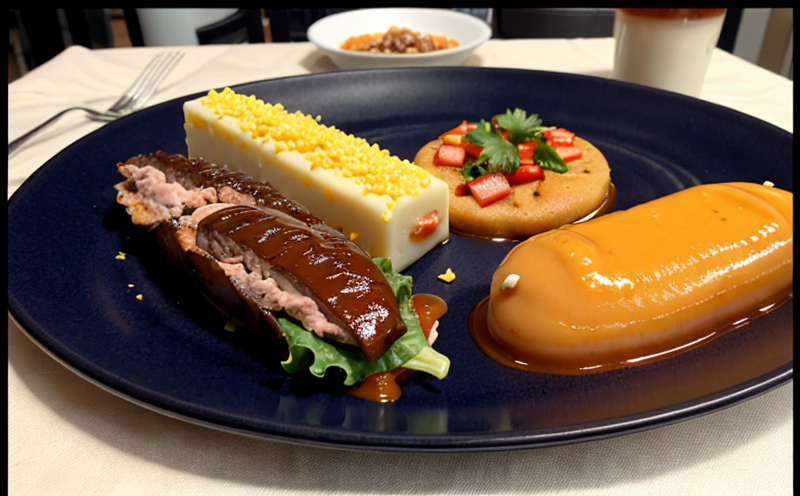FDA 21 CFR Part 175 Coating Compliance
Compliance with FDA regulations is crucial in ensuring that food contact materials and articles are safe for human consumption. The Federal Food, Drug, and Cosmetic Act (FDCA) mandates strict controls on the use of substances intended for use in manufacturing, packing, packaging, or holding food to prevent contamination. Specifically, FDA 21 CFR Part 175 governs coatings used on food contact surfaces. These regulations are critical because they help prevent the transfer of potentially harmful substances into food products during processing and storage.
Coatings are commonly used in various packaging applications such as paperboard cartons, plastic containers, and metal cans to enhance barrier properties against moisture, oxygen, and other contaminants. However, these coatings must not only provide functional benefits but also comply with stringent safety standards set forth by the FDA. Failure to adhere to these regulations can result in significant legal repercussions for manufacturers, including product recalls and potential fines.
The scope of FDA 21 CFR Part 175 includes evaluating the migration potential of coating materials into food products. Migration refers to the transfer of certain elements from packaging components into direct contact with foodstuffs. This could include leachable chemicals like phenolic resins, melamine formaldehyde resins, and other compounds used in lacquers or glazes applied to surfaces that come into contact with food.
Testing under this regulation involves several steps aimed at assessing the safety of coatings. Specimens are prepared by simulating real-world conditions relevant to their intended use. For instance, samples may be subjected to immersion tests where they are exposed to acidic or alkaline solutions mimicking different types of beverages or foods. Additionally, accelerated aging procedures might be employed to simulate long-term exposure to environmental factors like heat and light.
Once prepared, the specimens undergo rigorous testing using specialized analytical techniques capable of detecting trace amounts of leachable constituents at parts per million levels. Common methods include gas chromatography-mass spectrometry (GC-MS), inductively coupled plasma mass spectrometry (ICP-MS), and ultra-performance liquid chromatography (UPLC). These analyses provide detailed information about the composition of both the coating itself as well as any potential migrants.
The results from these tests are then evaluated against specified limits outlined in FDA regulations. If migration levels fall within acceptable thresholds, it indicates that the coating poses minimal risk to public health. Conversely, if there is evidence of excessive migration or unacceptable constituents detected, further investigation would be necessary to identify root causes and implement corrective measures.
- Ensures compliance with FDA regulatory requirements for food contact coatings
- Evaluates the potential risk of migrant substances leaching into food products
- Provides detailed analysis of coating composition and its interaction with food simulants
Why It Matters
The importance of FDA 21 CFR Part 175 compliance cannot be overstated. For quality managers, maintaining adherence to these standards helps protect their brand reputation by ensuring consistency and reliability in product safety. Compliance officers play a vital role in overseeing regulatory updates and implementing necessary changes within the organization. R&D engineers benefit from having reliable data that supports innovation while reducing the likelihood of costly mistakes during development phases.
From an operational standpoint, procurement teams can ensure they are sourcing materials from suppliers who meet stringent standards. This not only minimizes risks associated with non-compliant products but also fosters trust between partners along the supply chain. Ultimately, compliance with FDA 21 CFR Part 175 contributes to safer food packaging solutions that contribute positively towards public health.
- Reduces the risk of product recalls due to unsafe or non-compliant coatings
- Safeguards brand reputation and consumer trust through consistent compliance practices
- Aids in regulatory updates and implementation, ensuring continuous adherence to evolving standards
Eurolab Advantages
At Eurolab, we pride ourselves on offering comprehensive testing services tailored specifically towards meeting FDA 21 CFR Part 175 requirements. Our state-of-the-art facilities equipped with advanced analytical instruments allow us to conduct precise and accurate evaluations of coating materials used in food contact applications.
We employ highly skilled professionals who stay abreast of latest regulatory developments, ensuring that our testing protocols remain up-to-date. This proactive approach allows us to provide clients with timely feedback on the safety status of their coatings before any issues arise. Furthermore, our experienced team offers valuable insights into best practices for minimizing migration risks while maintaining product functionality.
Our commitment extends beyond just meeting regulatory expectations; we also focus on providing additional value-added services such as technical consultation and troubleshooting support. By leveraging our expertise in this area, Eurolab aims to help clients navigate complexities associated with FDA regulations confidently and efficiently.
Environmental and Sustainability Contributions
- Educating industry stakeholders about the importance of compliance can lead to improved environmental practices by reducing waste generation and promoting more sustainable manufacturing processes
- Promoting responsible use of resources through better understanding and application of regulatory frameworks aimed at minimizing adverse impacts on ecosystems





